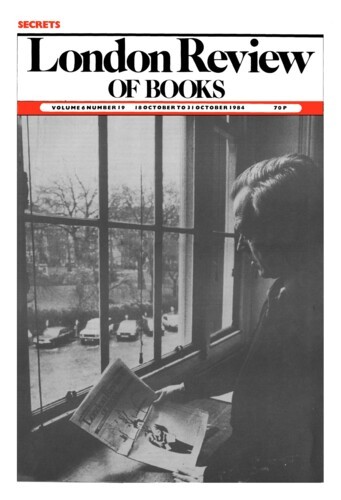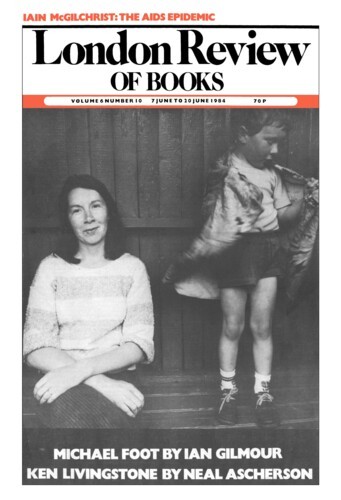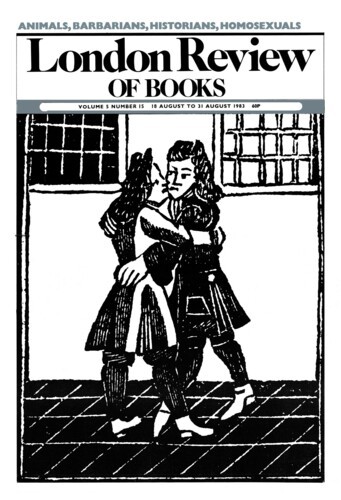Who did you say was dumb?
Mary Midgley, 5 February 1987
The Lord, having apparently grown tired of hearing a certain sort of behaviourist boloney talked about animals, seems to have designed a most unusual missile for dealing with it. The warhead consists of a skilled, experienced, professional animal trainer. The directive system – which is the most surprising component – is an acute, trained student of contemporary philosophy, psychology and literary criticism, who has paid particular attention to the work of Wittgenstein. The propellant is a general dislike of humbug and a particular commitment to the proper treatment and understanding of nonhuman animals. While any two of these elements have at times been found in combination before, the whole set certainly has not, any more than watches have been found on uninhabited planets or monkeys have typed out the Bible. My present business, however, does not extend to the theology of the matter: it is simply to consider the job as it has been done.




